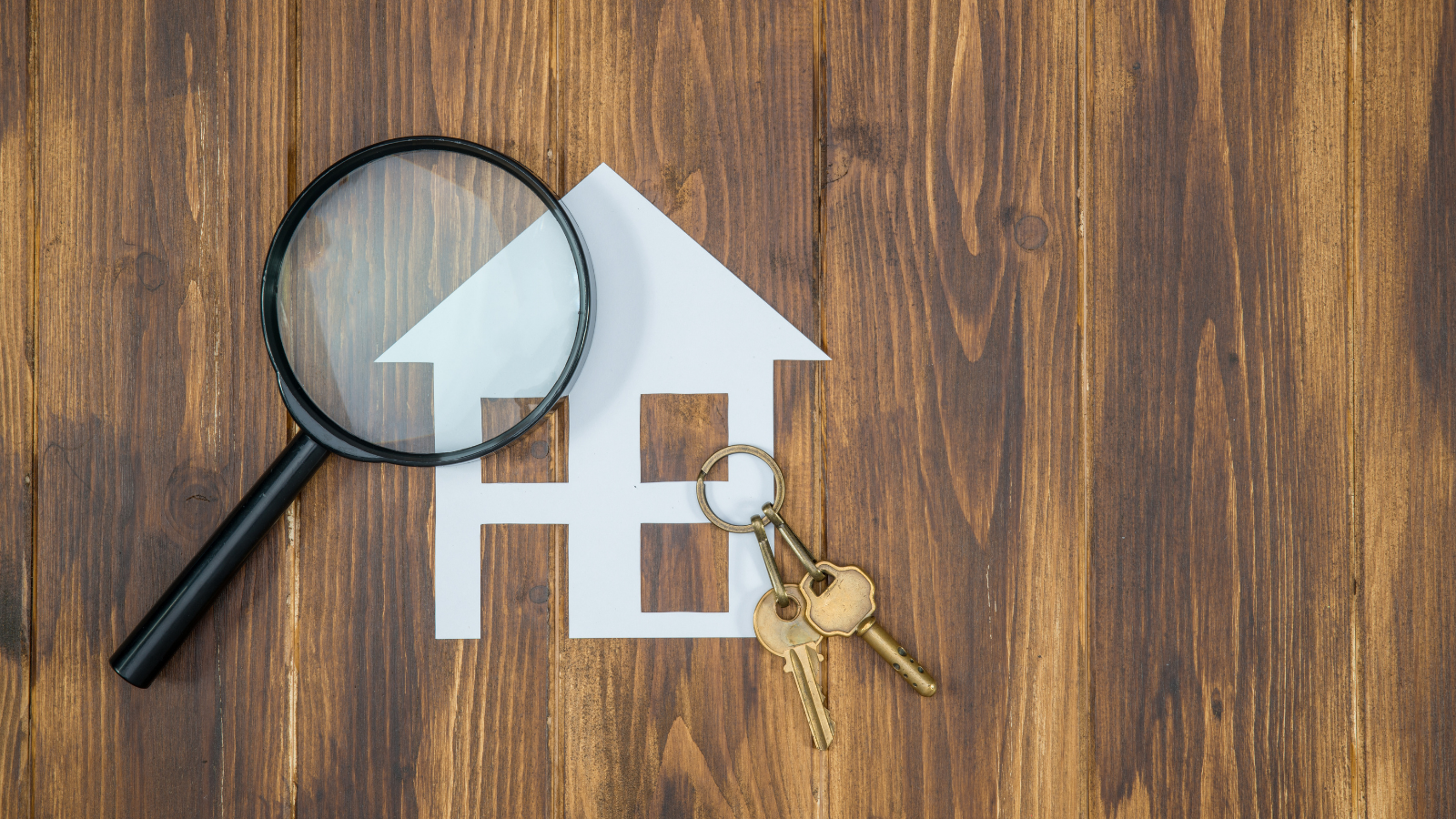Social Links Widget
Click here to edit the Social Media Links settings. This text will not be visible on the front end.
Budgeting 101: Saving for a New Home

Homes aren’t cheap. And with a minimum 5% down payment needed to secure a mortgage, saving enough can feel impossible. Saving to buy a home requires discipline and careful budgeting. Here are some tips to help you get started:
1. Set a Goal
Without a target in mind, saving can feel intangible. Setting a clear goal helps you to stay motivated and focused. Look at homes for sale in your area and get an idea of what you would like to be able to afford. You can then determine how much you’ll need to save. For added motivation, give yourself a target date for achieving that savings. This can help curb unnecessary spending while saving up for a down payment.
2. Create a Budget
To budget, you will need to budget (obviously!). Make a detailed list of your income and expenses, so you have a clear idea of what you have to set aside. Track your spending habits and identify where you can cut back. Then allocate a specific amount each month toward saving for a new home.
Pro Tip: Set up an automatic transfer between your chequing and savings accounts on your dedicated payday. This way, you won’t need to remember to manually add the money each month. Plus, when it’s out of sight, it’s usually out of mind, and you’ll be less likely to overspend!
3. Cut Back on Spending
As I mentioned in creating your budget, it’s essential to reassess your spending habits to reduce non-essential spending. Consider meal planning to save on eating out and cut back on entertainment. Before spending, think about whether it is a want or a need.
4. Minimize Debt
By reducing your existing debt, you will free up more money to put toward saving for a new home. Prioritize paying off high-interest loans, like credit cards, and avoid adding new debts while saving. If you want to buy a new home, maybe that new Range Rover will have to wait…
5. Set Aside Rebates & Bonuses
While it may seem tempting to put that climate action incentive payment toward a nice meal or a new gadget, consider the boost it could make in your savings plan. Plan to put tax returns, government payments, and other bonuses throughout the year directly into your savings. This way, you can eliminate the temptation of overspending and put that supplementary income toward saving for a new home.
6. Research Government Programs
The Government of Canada has several ways to help homebuyers—particularly first-time homebuyers—afford a down payment. These include the Home Buyers’ Amount, First Time Home Buyer Incentive, First Home Savings Account, and GST/HST New Housing Rebates. To learn more about these programs and find out if you are eligible, visit their Buying a Home page or talk to your financial advisor.
By following these budgeting tips, saving for a new home can become much more attainable. But it’s important to remember that even with these tips, you must remain patient and persistent. Saving for a down payment takes time, and you have to stay committed to your goal for the long term. Unexpected expenses can happen, and patience is vital to getting through those circumstances. Celebrate the small wins along the way, and remember that every dollar saved is another step closer to owning a home!
My Top Tips for New Homeowners

Congratulations—you bought a home! Whether you’ve just gotten the keys or are anxiously awaiting possession day, there are probably a million things running through your mind. Between unpacking, decorating, possibly renovating, and all the rest of it, it can be hard to know where to begin. That’s why I’ve gone ahead and put together my top tips for new homeowners to help you get started.
1. Budgeting
Creating a budget is an essential first step to owning a home. Mortgage payments can be more (but also sometimes less!) than the average rent, so planning for how best to save and spend your money can go a long way in relieving financial stress. Start by making a list of your expenses every month. Include everything from your phone and Netflix bills to your mortgage payments and property taxes. If it comes out of your bank account every month, make sure it is there. This can give you a realistic expectation of what you need and how much you may have left over for non-essentials to prevent overspending.
2. Make Yourself at Home
Sure, you took a walkthrough of the house before you bought it, and likely during the home inspection, too. But everyone knows it can take a while to really feel at home in your house until you get to know it a little better. Take time to look around every room and familiarize yourself with your new surroundings. Find the important things, like your water shut-off valve and electrical panels, to make maintenance easier. Who knows! You may even find a new favourite feature this time around.
3. Plan for Regular Maintenance
Regular home maintenance is one of the most important parts of owning a home. This keeps everything in working order and prevents unnecessary stress from unexpected problems. Create a plan and schedule in the recurring tasks that need to be accomplished throughout the year. This includes changing air filters, cleaning the gutters, testing smoke detectors, indoor plant care, and routine cleaning.
4. Get a Toolbox
If you don’t already have a toolbox, getting one is one of my best tips for new homeowners. Hammers, screwdrivers, levels, and drills are essentials around the house, and you can’t always plan for when you’ll need one. Expect the unexpected and keep essential tools on-hand in an easy to find place. Just don’t forget to put them back when you’re finished!
5. Meet Your Neighbours
While the digital age has made meeting people easier in some ways, it can never replace the value of face-to-face interactions. And when you buy a new home, getting to know your neighbours can be a lifesaver. They can provide a helping hand in an emergency, keep an eye on your house while you are away, and foster a sense of community.
6. Create an Emergency Plan
Though we may pray they never do, emergencies happen. From power outages to house fires—you never know when the unexpected could hit, and it is better to be prepared. Make sure to have a plan in place and go through it with everyone in the family so you’re all on the same page. Create an emergency kit with the essentials, know where the first-aid supplies and fire extinguishers are, and have an evacuation plan ready.
7. Enjoy!
It’s not every day that you get to move into a new home that is all yours. Yes, there’s a lot of responsibility in homeownership, but there should also be some fun, too. It’s a significant accomplishment and something to be proud of. Take a moment to celebrate with a housewarming party or even just a quiet bottle of wine on the living room floor—you deserve it!
What is the Best Time to Move?

You’ve seen it. It’s everywhere! Inventory remains at an all-time low in Saskatoon, and with interest rates also staying attractively low, demand remains high. With eager buyers jumping at the opportunity to buy a home, prices are rising, piquing many homeowners’ interest in selling.
Whether you’re a first-time home buyer hoping to take advantage of the fantastic interest rates or a seller hoping to get more for your home, you’ve likely asked, “Is it a good time to move?” There are a lot of factors to take into account when considering the best time to move. If you’re currently deciding when to move, here are some of the factors to consider:
Why Are You Moving?
Depending on why you are moving or considering a move, your timeframe for when to move could change considerably.
#1 – You Are Relocating for Work. If you are moving to Saskatoon for a new job or position, you are likely working with a set deadline. This means you will have strict guidelines both in searching for a home and planning a move when it comes to dates. If you are simply moving within the city to lessen your commute or make it more convenient, you will have considerably more flexibility.
#2 – Looking for a Better Neighbourhood. Another reason why many families choose to move is to find the perfect neighbourhood. While this doesn’t give you any time constraints to work within, it’s important to note that it can take some time if you are particular about the neighbourhoods you are searching in. You may need to wait for the perfect property to come on the market.
#3 – Moving to a Bigger Home. Growing families often find themselves searching for more space, which may mean moving to a bigger home. While a great reason to be making your move, it shouldn’t interfere with any timing you may be planning for.
#4 – Downsizing to a Smaller Home. When the kids have all flown the nest, and you no longer need the 5-bedroom, 3-bathroom house, it might be time to downsize. Again, similar to moving to a bigger home, this shouldn’t interfere with planning the timing of your move.
#5 – Taking Advantage of Interest Rates. If you’ve been pre-approved for a mortgage with an attractive interest rate you don’t want to miss out on, you will need to expedite your home search to fit your locked-in rate’s deadline. These typically stay in effect for 60-90 days, which will be about when you should plan to buy a new home. However, if you’d prefer to push off the move beyond that time, you can always talk to your REALTOR® about moving the possession date to a time that works better for you.
#6 – Making the Most of Market Trends. If you have a home to sell and Saskatoon is in a seller’s market, you may want to take advantage of that to get more value for your home. Especially in a high-demand market, this could mean a quicker move, so talk to your REALTOR® about how quickly you might expect to sell. That way, you can get a better idea for planning your move.
The Best Time of Year to Move
Knowing how the reason you are moving influences the timing of your move, you can start to plan the “when” of it all. Each season has pros and cons for moving, so here’s what to consider when deciding the best time of year to move for you and your family.
Spring is traditionally when the real estate market in Saskatoon begins to get busiest. The weather starts to warm, people start coming out of the homes they’ve been trapped in all winter and are eager for a change of scenery. Some pros to moving in spring are that you’ll be settled into your new home in time to relax for the summer holidays, and the weather tends to be much more temperate—not too cold and not too hot. However, it can also be a hectic time for kids in school, particularly those in high school facing exam season. Moving companies are also getting busier, so you may need to be more flexible with dates to make it work.
Summer, particularly early summer, tends to be the busiest moving season as homebuyers who bought in spring come up to their possession dates. Moving in summer can be a great thing—the kids are out of school, it may be easier to take vacation time, and the weather is usually warm and sunny. However, moving companies are in their highest-demand season, which means you may have a harder time picking dates and can even expect to pay a little more than slower seasons.
Fall is when the Saskatoon real estate market tends to slow down as kids return to school and the vacation replies start to disappear. This cooler market may make moving in fall the ideal choice for you, with less demand for moving companies and typically easier conditions for buying a house. Plus, you will be nice and settled in just in time to show off to friends and family over the holidays! However, it can also be a little more complicated if you have kids in school, especially if you might be moving to a new school district.
Winter is usually the slowest season in real estate, with colder weather keeping people indoors. This can make moving in winter more attractive, with market conditions at their least stressful and moving companies at their most available (sometimes even offering discounted rates!). However, you will need to battle the elements on moving day, something most of us avoid during winter in Saskatchewan, and you may be in the process of moving over the holidays, which can already be stressful enough.
So, when it really comes down to it, there is no true “best time to move,” only the best time for you and your family. No matter when you decide to make your move, though, there are a few tried and true ways to make it as easy as possible. Your experienced REALTOR® will be able to walk you through all of the best tips and tricks for a stress-free move. And if you still need help deciding when to do it, they can help with that, too!
Top 5 Benefits of Owning a Home

I’m not going to beat around the bush; a house is a big purchase and a huge life milestone. You want to make sure you are making the right choice. Have you been wondering if it is worth it to take the leap? Are you overwhelmed by all the information out there? While there are many benefits of owning a home versus renting one, here are some of the top ones you’ll want to consider!
#1 – It’s a Great Way to Build Equity
First off, what does equity mean? Equity refers to the probable market value of your property against any liens (such as a mortgage). The longer you own a home and pay towards the balance of any liens, the liens will gradually decrease as the property value and your equity in the home increase. The larger the home equity you have, the more borrowing and purchasing power you earn towards loans for home improvements, funding your children’s education, or other consumer goods such as a car.
While you build your equity as a homeowner with regular payments, your credit score will also receive a nice boost!

#2 – Your Investment Gets Better With Time
Investing in buying a house provides a better return than most other investments, such as a car. Depreciation begins as soon as you drive the car off the lot, where owning a home behaves in the opposite, appreciating in value over time (depending on market conditions).
Though even an experienced local REALTOR® cannot predict precisely what will happen with your home value in the coming years, they can provide past values for the neighbourhood. Looking towards the trends on values on homes in the area will help gain some understanding of what you can expect.
#3 – Less Expensive Than Renting in the Long Run
Yes, really! When buying a home, there are, of course, many upfront costs—down payment, appraisal fees, homeowner insurance, etc. And, similarly, you are paying a certain amount per month. However, as stated in the first point, you are paying to own the home, and your personal net worth increases. Whereas, with rental properties, you are paying to use the landlord’s property to live.
Check out Renting vs. Buying: Which is Better For You for a more in-depth comparison!
#4 – Plant Your Roots
Options for rental properties are often limited in terms of location. Buying and owning your home means you get to CHOOSE where you want to live; the neighborhood and proximity to schools, parks, your employer, and other amenities. By this choice, you can be sure you will have pride in ownership, not only in your property but your community, by forming relationships with fellow neighbors, local services & politicians and taking part in community events.

#5 – Freedom to Customize Your Space
This might be the last on the list, but it is certainly not the least. Actually, this might be the best reason of them all! While renting, you are at the mercy of your landlord in terms of colour and style choices made and cannot alter them. Ownership offers you the freedom to make changes. Paint the walls, rip up that carpet, install a secret door—the choice is yours! To make the deal even sweeter, not only will these changes make the house feel more like home, but they can elevate your property’s value as well.
Of course, there are countless other benefits and considerations for purchasing a house. However, the best way to ensure you are finding the perfect home for you and your family is to work with your very own REALTOR®.
Don’t have one? I’d be happy to help—contact me today!
4 Tips for Buying a House

Buying a house isn’t like buying a kitchen appliance. You don’t have the luxury of researching, reading reviews, price matching, and using all of that to choose the absolute right fit before bringing it home. And if it doesn’t quite fit as well as you thought, you have the opportunity to return it for an exchange or refund.
Instead, when buying a home, you are limited to the ever-changing availability of the real estate market inventory, which may or may not contain a home that fits all your wants and needs. This is especially true in a seller’s market, like we are currently experiencing in Saskatoon real estate. And if you do find one outside of your budget, saving up just a little more and coming back to it usually isn’t an option. There are no reviews other than those of the sellers, and if you feel like you’ve made a wrong choice, a refund is not an option. So how do you know you’re making the right choice?
Well, here are just a few tips for buying a house to help you along the way:
Tip #1 – Keep Looking Until You Find the Right Home in Your Price Range
Every market is different, and you may need to concede some of the items on your wish list to find the right house. Things like the neighborhood your dream home is in, the year it was built, and its condition can drastically change its value.
Don’t give up! And rely on the advice of your REALTOR®—they’re a seasoned professional. A house is one of the most significant investments you’ll ever make, so you shouldn’t need to feel like you are settling simply because you are in a rush.

Tip #2 – Pay Attention to Location & Layout
Hate the decorations? Disgusted by the paint colors? Get over it! These are all things that can be fixed later on. However, nothing can be done about a bad neighbourhood, crummy floor plan, or a 20-minute commute to the closest grocery store, so don’t compromise on those.
Look for a neighbourhood and layout that fits your lifestyle. And for a good deal on buying a home, be open-minded about that dated kitchen tile.
Tip #3 – Think About Home Value Growth
Don’t just go for a pretty porch or spacious yard; look for a property that will grow in value over time. Do some research on the history of home values and businesses in that neighbourhood and the surrounding area, or ask your REALTOR® about the trends they have seen. Are home values rising? Is the number of businesses increasing? Those are good signs!
And if you can, try to find a house at the bottom price range in the best community you can afford. No one wants to be stuck trying to sell a $300,000 home to future buyers who are shopping in a $200,000 neighbourhood.

Tip #4 – Ask Questions During Showings
Ask tons of questions when you’re touring the house to make sure it’s genuinely your ideal home. Your real estate agent should be able to help you develop a list of relevant questions to ask, but here are a few standards to keep in mind just in case:
What is included in the sale? Does the price include things like appliances, light fixtures, or the hot tub?
When were the appliances updated last? Look at the plumbing, HVAC, septic tank, fridge, oven, and the washer and dryer.
How old is the roof? When was the last time it was looked at for any potential damage or leaks?
Are there signs of any pest infestations or water damage? Quite often, these can be visible at face value, but ask the sellers if there may have been anything they may have encountered beneath the surface.
What is the home like in winter and summer? Is there a south-facing window that turns the living room into a sauna without a good pair of blinds? Is there a draft that doubles the electricity bill in the winter just to stay warm?
Of course, there are countless other tips that I could give you for buying a house, many of which I mentioned in my Official Guide to House Hunting. However, the best way to ensure you are finding the perfect home for you and your family is to work with your very own REALTOR®.
Don’t have one? I’d be happy to help—contact me today!
How to Choose “The One”: Your Guide to Finding Your Family’s Perfect Home

Some people may make the mistake of rushing into renting or buying a property, only to realize later on that there’s something that they dislike or is missing. I’m not talking about missing shingles or whether it is up to code or not—a proper home inspection can easily catch that. I am talking about those key features and lifestyle elements you and your family are looking for that take the property from house to home. Those should play just as important of a role in your home search as whether the plumbing has been installed correctly.
Below are my best house hunting tips to ensure you choose a property that you will love.
#1 – Does it Check Your Boxes?
My best advice before you even begin your house hunt is to evaluate your current home. Create a list of items you love and that work well for you and your family. Then, create a list of things you don’t like about it or things you would like to change. These lists will help you decide on your “must haves” and your “want to haves.” and will be the lists you take house hunting with you. The home that checks most, if not all, of your boxes will be high on your potential buy list.
#2 – Renovation Potential
Does the house you like need work? Are you capable of taking on the renovation by contracting it out or adding on some sweat equity? This can be one of the best ways to ensure you will love the home now. Of course, a major renovation means you can make changes to the layout, adding or removing rooms as you desire, but even minor renovations, like changing the countertops or flooring, can help you fall in love and stay in love with a property.

#3 – Evaluate Size & Storage
Size demands can go both ways. Too small, and you will feel like you’re bursting at the seams and will need to upsize sooner than you had planned. Too large, and you will find it hard to make the home feel “homey”—there’s a lot of furniture required to fill a large home and you may become frustrated with the amount of daily maintenance required. And for storage, can you ever have too much storage? (Well, I guess there comes a point where you need to purge those junior kindergarten halloween costumes…)
Your home should be just big enough for your family and have the desired space to store your belongings.
#4 – Investigate the Neighbourhood
If you enjoy talking with your neighbors over the fence, walking for exercise, or meeting at the local coffee shop, see if your new neighbourhood can offer that. Is the home close to the places important to you, like your parents’ house, work, schools, and activities? If it’s not, will it bother you to drive 30 minutes to an hour to and from each day?
#5 – Pay Attention to Your Feelings
Do you get that warm and fuzzy feeling when you walk in the door? Does the home “speak” to you? Does it feel like home? Can you envision your family living there? Have you already begun imagining furniture arrangements?

#6 – Be Realistic
The house you end up with may not be your dream house. It’s imperative that you end up with a house you’re going to be happy living in, but you might also have to adjust your expectations if the home you want isn’t one you can afford. Working with an experienced local REALTOR® will help you determine if your budget will meet your wants and needs. But knowing the difference between the two is key. You may have to pass on some of your wants to have in order to get your needs.
It can be a delicate balance between taking the time to make sure a house is right for you and making sure you get to it before someone else does, especially in a seller’s market. I will ensure you look at all the houses that align with your budget, needs, and wants. Then, together, we will weigh both the practical and emotional factors. Think about the pros and cons of the houses you’re considering but consult your gut as well. Sometimes, when it’s the “the one,” you just know.
The Official Guide to House Hunting You Didn’t Know You Needed

There’s more to house-hunting than just going to a few open houses, although getting to know the market in advance is not a bad idea. Before you become a serious “House Hunter,” there are some important things to consider. Whether this is your first house or you have just sold an existing home and now need to find your next home, this will be a helpful guide to ensure you’re ready. The following tips will make house hunting a smooth process. Well…as smooth as possible.
Team Building: Finding Your Real Estate Help
Now’s the time to start assembling your real estate team. These are the professionals whose expert knowledge will help focus your house hunt, seal the deal, and get you the keys to your first home.
It’s important to find the right REALTOR® for you. After all, this is a huge decision and having a real estate agent on your team will be a big help. The right REALTOR® will get to know both you personally and professionally, so they fully understand not only your financial goals, but also your plans and how you intend to live in the home.
A Mortgage Specialist works for a lending institution, while an Independent Mortgage Broker is unaffiliated with any one lender. In either case, as a key member of your team, they will walk you through your different mortgage options. Ultimately, it is your mortgage broker or specialist who will determine how much home you can afford. They will provide you with a pre-approval that you can take to your REALTOR® to start your house hunting off with realistic expectations.
Real Estate Lawyers will review the purchase agreement, help negotiate modifications, prepare closing documents, do crucial research on the property and liens, and fact-check legal descriptions of the building and lot. They will also collect, hold, and disburse fees associated with buying a property. Therefore, they are a crucial part of your Team.
Lastly, a good Home Inspector can save you money and stress by identifying problems in a property before you buy. These issues may have you revising your offer or rescinding it altogether.

Before the Hunt Begins
Finding the right home for your budget can be a process. Your REALTOR® will utilize their understanding of your specific situation to help you search for homes that best fit your lifestyle. They’ll save you time by filtering through listings that do not meet your desired criteria.
Some key items to discuss with your Real Estate Agent before you begin hunting:
Size & Space – consider spatial needs now and in three to five years’ time
Lifestyle – consider indoor and outdoor maintenance and upkeep
Community – consider school catchment areas, proximity to amenities etc.
Transportation – consider parking, proximity to public transit, walk-ability, bike-friendliness and travel time to your work
Recreation – consider distance to trails, parks, and rec centres
Start Hunting
Ready to kick off your house hunt? Let your team know since you need to be ready to pounce when the right house comes up. Your REALTOR® will provide information about the markets you’re interested in and help you compare homes and neighbourhoods. They can also provide access to exclusive listing information, preview properties to ensure you’re only shown homes that meet your needs and budget, and make appointments to walk you through homes that interest you.

Buy a Home
Once you’ve found the right home it’s time to let your team take over.
Your REALTOR® moves from Counselor / Analyst / Shopping Assistant to the Negotiator / Administrator, ensuring your transaction goes as smoothly as possible. They will bring together all information, using their expertise, to compile a market analysis report to assist you in deciding on a competitive purchase price. They will negotiate on your behalf to get you the best possible deal.
Your Home Inspector will then provide you with a Home Inspection Report. The report will assist you and your real estate agent in deciding if the home is sound and the purchase price is appropriate.
Your Mortgage Specialist / Broker will prepare your loan documents.
Your Real Estate Lawyer will now begin the legal process, facilitating the transaction.
Whew! That’s a lot to throw at you. But if you follow this guide to house hunting, you will have a great start on your journey to finding your dream home. You’ll find the house you’ve always dreamed of and avoid a purchase you’ll regret. And soon it will be possession day and you can move in!
The Finances

Mortgage Pre-Approval
The pre-approval step is an important one. After all, it will dictate how much you can spend and will allow you to determine how much you want to spend. Those sometimes are two different numbers. By getting this step out of the way, you are able to make educated decisions based on your financial situation.
Deposit
Once you have decided that you want to make an offer on a property, a deposit is needed to hold your interest in the home. Typically a $5,000-$10,000 deposit is required and the cheque is needed at the time the offer is made. The deposit cheque is deposited once the offer has been accepted and is held in the Century 21 Fusion trust account. This money also counts towards your downpayment and will be forwarded to the lawyers closer to possession day. If you decide not to remove conditions on the home during the conditional period, your deposit will be returned or can be held on to and applied to the next property you find.
Shopping Around
I usually recommend going to talk to your bank and also a mortgage broker to see what the best interest rate is they have to offer you and what other incentives or programs they might have that fit your needs. Remember that a 0.5% difference in interest rates means that for every $100,000 of mortgage amount, you are paying an extra $26 a month. Do the math and this equates to over $7,800 per $100,000 extra in interest costs over the length of the mortgage. Interest rates are important. Also noteworthy – don’t allow too many lenders to pull your credit score. Every time it’s pulled, your credit rating is affected negatively.
Down Payment
A typical down payment for first time buyer’s is 5% of the purchase price. Ensure you have enough money saved ahead of time so you can proceed with finding a home that’s right for you. If you want to avoid paying CMHC insurance fees (which can be substantial), have at least 20% saved up.
RRSP’s
The Government of Canada has a program where qualifying first time buyers can withdraw their RRSP’s and use that money towards their downpayment. It’s called the Home Buyer’s Plan and information on the program can be found here.
Calculating
Use the mortgage calculator link below to figure out different scenarios based on differing purchase prices. You can find out how much of a downpayment is required and what your payment will be along with details on a payment schedule, and you can add in any other costs that you may have. Using an affordability calculator online is a good way to help you work backwards and will calculate a purchase price you are comfortable with based on all other criteria imputed. Click here to access the Mortgage Calculator.
Costs Associated With Your Purchase
Buying a home can be overwhelming, especially when large amounts of money are involved. Here’s what you can expect with costs associated with your purchase.
Inspections
If you’ve decided to hire a home inspector, it will cost you around $400. I can arrange any other inspections as well and depending on what they are, the costs will vary and all will be your responsibility to cover.
Real Estate Fees
As a buyer, you don’t pay for my services. My commissions get paid through the seller of the house you’ve chosen. Once you decide to sell your home, you will then be responsible to pay for both sides of the commission.
Legal
Lawyer fees can vary but here’s what you can expect in fees for a typical purchase:
$800-$1000 + GST + PST for lawyer fees
+ $3/$1,000 of your purchase price for the land titles transfer
+$150 for mortgage registration
+ ~$150 for misc expenses like tax search, courier charges, postage, photocopying, etc.
If you would like a more accurate total, please contact your lawyer and they can let you know a closer approximation of what your total fees will be.
Surveyor’s
A surveyor’s certificate is a piece of paper that shows the outline of your home and any outbuildings (usually a garage) that are within the property lines. It will have dimensions to the buildings and also the lot size with the legal description. Often the seller will have a current surveyor’s certificate available and it gets handed down to the next owner. If it’s not available, or the seller never had one to begin with, you can purchase title insurance for your property. The lawyer requires either one and will make arrangements in ordering one if a certificate is not available.
Taxes
Often the seller pays their property taxes monthly to the City. If your possession date doesn’t fall on the first of a month or if the seller pays their taxes annually instead, there will be an adjustment that will need to be made. For example, if your possession is the 15th and the seller has paid their taxes for that month, you will be responsible in reimbursing them for 1/2 of the month that had already been paid. The lawyer will adjust the amount owing and charge you for any difference.
Hook Ups
If you are setting up new utility accounts, often the service providers will charge you a hook up fee. These will vary for the provider.
Movers
Hiring movers or any other moving expenses you might incur are also something to make note of so you don’t end up with any surprises.
Repairs
If there are repairs that are needed to be done shortly after moving in, plan for that expense as well. Often those things get added to the to do list and never quite get done until you’re ready to sell.
Knowing what the costs will be upfront will make the entire process less stressful and gives you a better idea so that you can be prepared.

 Facebook
Facebook
 Twitter
Twitter
 Pinterest
Pinterest
 Copy Link
Copy Link